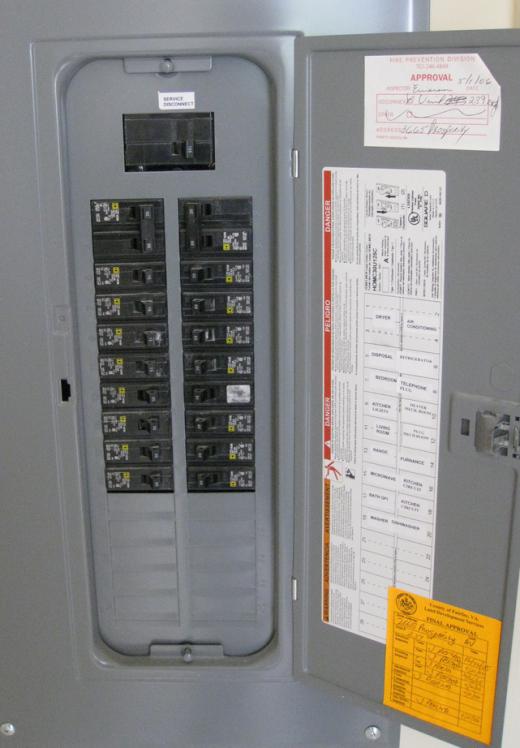A furnace room is a dedicated room within a building that is designed to hold mechanical equipment. The size of the furnace room can vary by location, but is often proportional to the size and function of the building. These rooms range from small closets used to hold a single furnace or boiler unit, to large rooms used to hold central heating and cooling units, as well as all related equipment. Furnace rooms may be subject to special design considerations or building code requirements due to the safety risks associated with these spaces.
In residential settings, a furnace room typically consists of a very small closet tucked away into a corner of the house. This space, which may also be referred to as a utility room, holds usually only a furnace or boiler. In some homes, this room may also house a hot water heater and electrical panel. Some homes may include space within this room for other utilitarian equipment, such as a washing machine or laundry sink. In a home without a separate furnace room, heating equipment is often installed in the garage or even the kitchen.

In a commercial or industrial building, the furnace room is typically known as a mechanical or engine room. These rooms are often relatively large, which enables them to accommodate the large volume of mechanical equipment needed in these types of structures. A commercial furnace room houses heating and cooling equipment along with all pipes and duct terminations related to these units. It may also house control panels for heating and cooling systems, as well as sprinkler, fire alarm, and other building systems. These rooms often serve as an office of sorts for janitorial and maintenance staff.

One advantage to including a separate furnace room within a building is that it helps to keep mechanical equipment out of the living space. This equipment is often an eyesore, and users typically prefer to keep it hidden from view. A furnace room also helps to keep all mechanical equipment in a single spot so it's easy to maintain and access. Isolating these units in a single room also makes it easier to contain and control noise and safety risks.
Furnace rooms house equipment that relies on electricity or fuel. Both of these power sources may pose a safety threat in terms of fire or harmful fumes. These rooms must be carefully ventilated to keep hazardous fumes out of the rest of the building. To prevent problems with noise, the furnace room door should be equipped with special seals that keep noise contained within the room.
